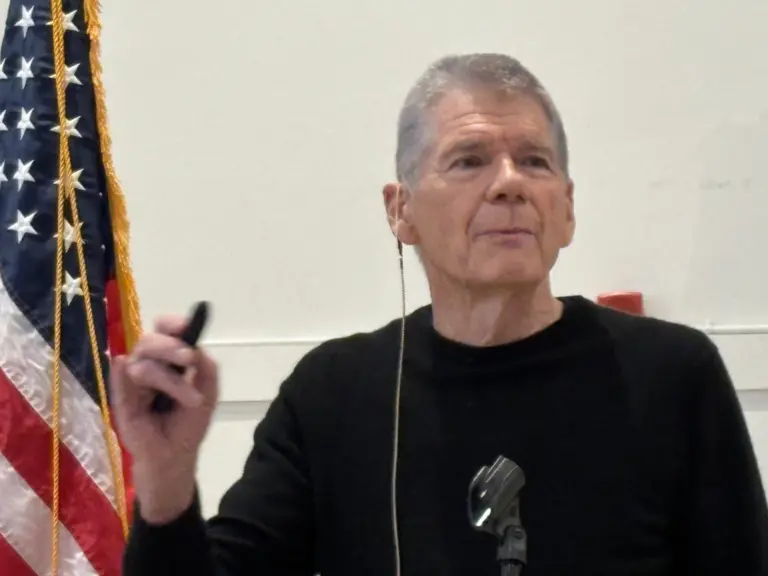By Nathan Hart
Conventional wisdom says you should always “listen to your heart.” The underlying assumption is that human desires (our “hearts”) are to be trusted because they are basically good. But some desires are not good. Envy, for example, is a desire that is “contrary to you,” according to the Bible. (Genesis 4:7). Envy not only works against our own best interest, it can also prove destructive to the people around us.
All of us experience envy. When I was 8 years old my cousin Danny got a new toy: a balsa wood airplane—the type with a red rubber band that, if wound up, made the propeller spin. It was still in its plastic wrapper and I watched as Danny unwrapped it and assembled the parts on the cement stoop of his house. To me, balsa wood airplanes, especially the wind-up self-propelled kind, were about as awesome as toys got. But there was a problem. Danny wouldn’t allow to me touch it. It’s too fragile, he explained. He didn’t want it to break. When he said those words, and as I watched him repeatedly launch the plane into flight, I felt three passions at once: an untamable desire to possess his toy, a smug self-confidence that I could handle it better than him, and a new distaste for his companionship which I had heretofore been enjoying very much.
Later, when he wasn’t looking, I stole Danny’s airplane and flew it myself. I was so nervous and excited that I launched it too fast and it crashed into the front siding of his home, and broke.
Envy is a “desire for another’s gifts, possessions, position or achievements,” by definition. At first glance, that doesn’t seem so bad. Anyone can notice a nice thing and want it. What’s the harm in that? Apparently, enough harm to bring envy into God’s list of no-no’s, the Ten Commandments. After “do not kill,” “do not commit adultery,” “do not steal,” and “do not bear false witness,” God’s law says, “do not covet.” (Exodus 20:11). Covet is another word for envy.
In the New Testament Jesus described envy as a grave sin. It is a “defilement,” in his words, of the human heart. He said:
From within, out of the heart of man, come evil thoughts, sexual immorality, theft, murder, adultery, coveting, wickedness, deceit, sensuality, envy, slander, pride, foolishness. All these evil things come from within, and they defile a person. (Mark 7:21–23)
The fact that envy is on the same list as sexual immorality and murder might surprise us. The external consequences for those sins are greater, but internally, envy causes destruction and can lead to great harm to ourselves and others. It led to the first murder in history. In the story of Cain and Abel in the fourth chapter of Genesis, Cain noticed God’s fondness of his brother Abel’s offering when God showed no regard for his own. The story shows us what envy looks like. It says that Cain became “very angry, and his face fell.” God, noticing Cain’s mood, warned him that sin was “crouching at his door” like a lion waiting to pounce. God told him that the envy he was feeling was a “desire [that] is contrary to you, but you must rule over it.” In the next sentence of the story, Cain kills Abel. He did not rule over the pouncing lion of envy but was overcome by it, even to the point of taking his brother’s life.
There are other less severe examples of envy throughout the book of Genesis. Esau envied Jacob for his inheritance (Genesis 27:41). Rachel envied Leah for her children (Genesis 30:1). Joseph’s brothers envied the favor he received from their father (Genesis 37:4). Each story proves what God told Cain, that envy is like a pouncing lion and is contrary to the person experiencing it, ultimately causing destruction.
The moral of the story is not always that envy sends us into murderous rage. Far more often, it causes needless work and anxiety. In Ecclesiastes, the author gives us a deep insight into the effect envy has on our lives. He says, “All toil… comes from a man’s envy of his neighbor.” (Ecclesiastes 4:4). By “toil” we can assume the author means anxious labor, which he says is done “in vain.” It’s like chasing after the wind, he says. Working for a paycheck is one thing. Working to get a nicer car than your neighbor’s is another. One brings a sense of satisfaction, the other bears the fruit of anxiety, possibly resentment, and eventual pride. That’s the strange surprise about envy: it makes us simultaneously want to be like someone and resent them at the same time. It makes us feel both less-than and prideful. Chasing after the wind is a game we cannot win.
What is the solution? The book of Proverbs vividly illustrates the contrast between a tranquil heart, which is to say a grateful and satisfied heart, and an envious one:
A tranquil heart gives life to the flesh,
but envy makes the bones rot. (Proverbs 14:30)
The New Testament says that we need “wisdom from above” if we hope to rid our hearts of envy.
Where [envy] and selfish ambition exist, there will be disorder and every vile practice. But the wisdom from above is first pure, then peaceable, gentle, open to reason, full of mercy and good fruits, impartial and sincere. And a harvest of righteousness is sown in peace by those who make peace. (James 3:15–18)
If the antidote to bone-rotting envy is having a tranquil heart and obtaining wisdom from above, how can we access these things? In a word, with gratitude. But not just general gratitude, gratitude for the most precious, most valuable thing we could ever have: God himself. In the 73rd Psalm, the psalmist confesses his envy regarding his more prosperous friends. He honestly expresses his simultaneous desire to be like them and his disgust of them. Having worn himself out with emotional exhaustion considering these things, he eventually enters the sanctuary where he worships God and is reminded that if he has God, he has everything he needs. “Whom have I in heaven but you?” he declares to his Savior. “And there is nothing on earth that I desire besides you.” He looks at the whole world and the shiny objects he once desired, and he concludes that there’s nothing worth comparing to the gift of being with God.
Do you want freedom from the destructive cycles that envy causes? Do you desire a tranquil heart and wisdom from above? Enter the sanctuary and get yourself into proximity with your Savior, Jesus. In his presence you will realize that there is nothing on earth worth envying. In his love we have everything we need.
Rev. Dr. Nathan Hart is the Senior Pastor of Stanwich Church.




